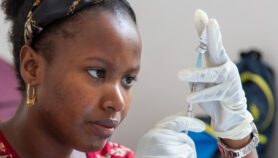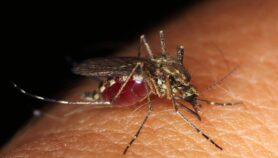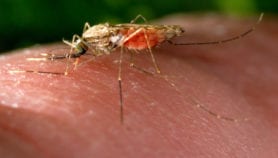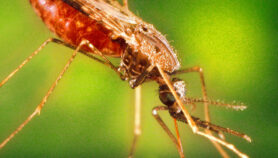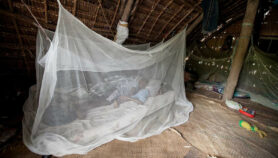25/04/23
Malaria elimination held back by climate change
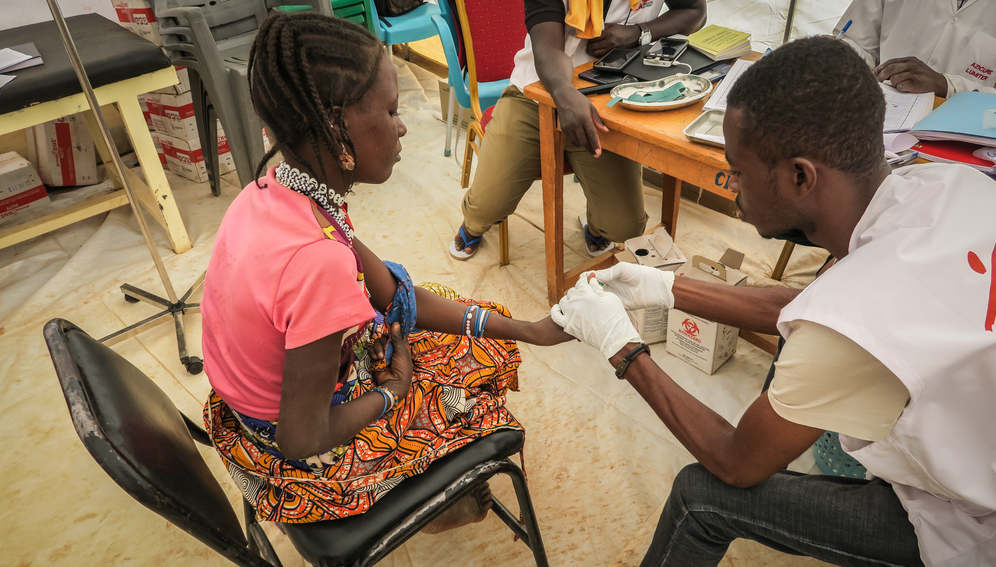
By: Simon Bland
Send to a friend
The details you provide on this page will not be used to send unsolicited email, and will not be sold to a 3rd party. See privacy policy.
Climate change must be integrated into strategies to fight malaria, writes Simon Bland, chief executive of the Global Institute for Disease Elimination (GLIDE).
World Malaria Day gives the world the opportunity to take stock of the state of malaria worldwide, a disease which in 2021 saw 247 million cases and claimed 619,000 lives.
Geographically, the African region accounts for 95 per cent of global malaria cases and 96 per cent of deaths. Children under the age of five account for 80 per cent of all malaria deaths in the region, and the impact of COVID-19 has led to an additional 13 million malaria cases and 63,000 deaths, according to the World Malaria Report.
While these numbers are sobering, we cannot forget to celebrate the successes of global elimination efforts.
“Both World Malaria Day and World Immunisation Week provide stark reminders to the global health community that the battleground against vector-borne diseases is becoming harsher.”
Simon Bland, CEO, GLIDE
Malaria mortality rates have decreased significantly since the 20th century, owing primarily to increased funding which has led to new discoveries, innovations and better access in the prevention and treatment of the disease.
In the last 20 years alone, it is estimated that 1.7 billion cases of malaria were prevented, saving around 10.6 million lives.
There are a variety of interventions for tackling malaria. These include solutions which offer protection against vector-borne diseases such as insecticide-treated bed nets; tests which allow for faster and more accurate diagnosis, and the development of new antimalarial drugs for treatment.
Promising vaccines
There are a number of vaccines in development which show promise in the fight against malaria.
The first vaccine ever developed against a parasitic disease, RTS,S, works against Plasmodium falciparum, the deadliest malaria parasite and the most prevalent in Africa. This vaccine is currently being piloted in Ghana, Kenya, and Malawi by the World Health Organization (WHO).
Another candidate, R21, has shown to be up to 80 per cent effective at preventing malaria in young children with a booster given one year later to maintain the levels of protection at 70 to 80 per cent. While clinical trials are ongoing, the use of R21 has already been approved in both Ghana and Nigeria.
These latest findings deserve to enter the spotlight especially as we also commemorate World Immunisation Week (24-30 April).
While vaccines can certainly help move the needle towards malaria elimination and save thousands of lives yearly, they will require continued research and funding and must be used alongside existing, well-proven interventions.
However, there is one major obstacle looming ahead which has the potential to set back global elimination efforts by decades.
Climate-sensitive disease
Malaria is among the most climate-sensitive diseases, meaning changing temperatures and weather patterns can have severe impacts on rates of infection and transmission.
In malaria-affected regions, the impact of climate on the disease is primarily due to changing rainfall patterns or increased flooding risk which results in more frequent and wider areas of standing water providing perfect breeding grounds for parasite-carrying mosquitoes.
These climatic conditions also have an impact on the lifespan of mosquitos and the development of malaria parasites. Increases in temperature, humidity, and rainfall are likely to proliferate the mosquito population at higher altitudes and latitudes and deeper into southern Africa, resulting in a widened geographical distribution of the disease, allowing malaria to emerge in new locations.
There are several ways in which climate change can be integrated into malaria elimination efforts. Enhanced monitoring of climate and disease patterns, which track variations in the incidence and distribution of malaria, will be essential moving forward.
Knowledge gained from better monitoring will aid vector control measures such as bolstering larval control in areas that have newly become habitable to mosquito populations.
Closely monitoring and considering the efficacy of current interventions and updating best practice to suit a changing environment is a must, which should run in tandem with research and development (R&D) into new, climate-resilient solutions.
Research to understand the complex relationships between climate change, mosquito behaviour and malaria transmission can be used to innovate and develop new solutions or evolve existing ones.
Next steps
Initiatives like The Falcon Awards for Disease Elimination: The Climate Edit, a global initiative for expanding the evidence base on the intersection of disease elimination and climate, are essential for driving needed innovations and building momentum for climate-focused health solutions.
Through the awards, the Global Institute for Disease Elimination (GLIDE) will provide support to researchers around the world to examine new and under-explored areas of the nexus between climate change and infectious diseases, disseminate new knowledge, and inform potential new interventions and solutions.
Climate-focused efforts will require a cross-sectoral approach to malaria elimination which does not just consider climate change as an additional variable but integrates climate issues throughout.
Strategies such as vector control to stem the mosquito population, financing R&D for vaccine development, health education, environmental management, and collaboration with local communities to create malaria elimination programmes are all necessary and effective approaches.
Both World Malaria Day and World Immunisation Week provide stark reminders to the global health community that the battleground against vector-borne diseases is becoming harsher, and as the world’s climate changes, it will become more and more difficult to achieve global malaria elimination.
There is no time to wait. Now is the time to deliver zero malaria.
*GLIDE is a global health Institute focused on accelerating the elimination of four preventable infectious diseases: malaria, polio, lymphatic filariasis, and river blindness, by 2030 and beyond.
This article was produced by SciDev.Net’s Global edition.






